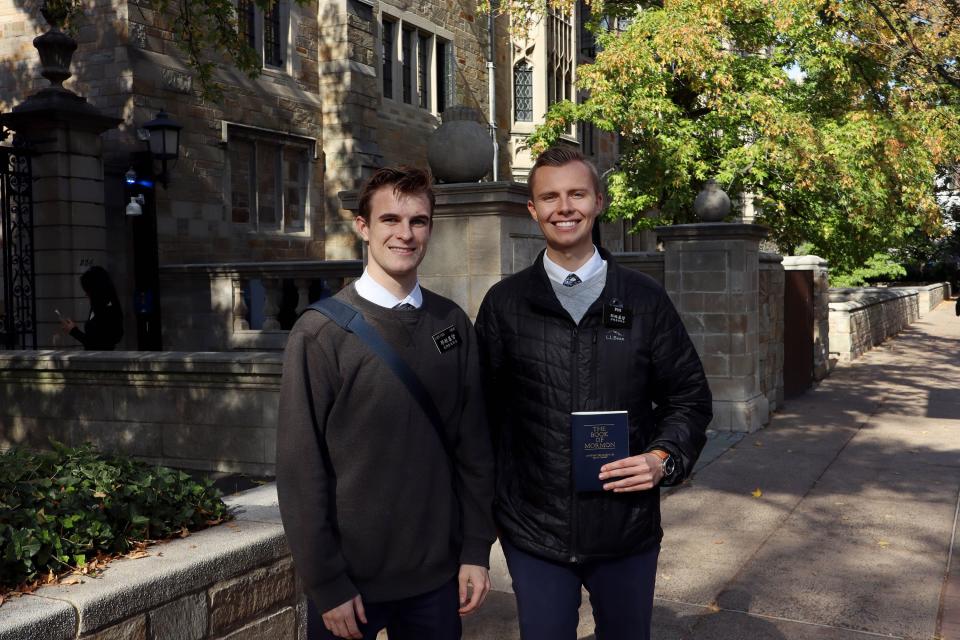It’s not the ‘Y,’ but ex-BYU President Kevin Worthen is loving Yale
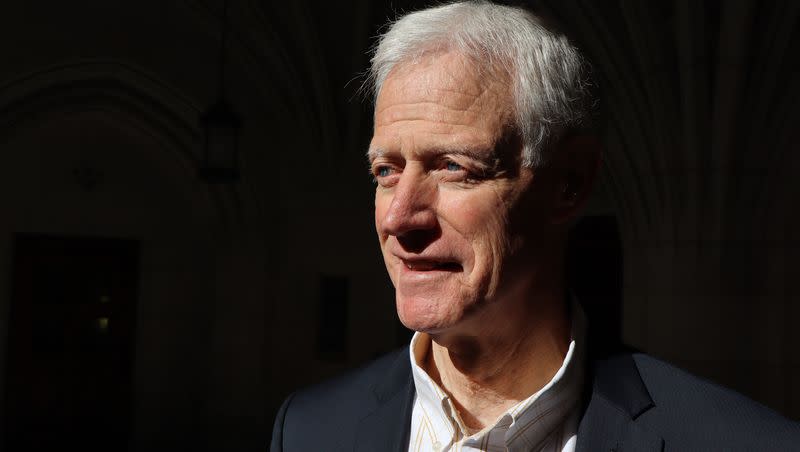
- Oops!Something went wrong.Please try again later.
Kevin Worthen, six months removed from serving as president of Brigham Young University, was cheering for a team with the big block Y last Saturday. But he wasn’t in Provo, where BYU hosted No. 14 Oklahoma in its home season finale. Instead, he and his wife, Peggy, had made plans to attend The Game: the annual Harvard-Yale rivalry, held this year in New Haven, Connecticut.
It’s a first for Worthen, who spent the past two decades serving BYU, first as dean of the law school and later as BYU’s advancement vice president and eventually as the university’s president.
Now, he’s at Yale, visiting for a yearlong professorship at the nation’s top-ranked law school.
He’s sinking back into academic life comfortably (“falling back in love” he said), far away from the administrative burdens and back-to-back meetings once demanding his time.
Worthen’s office, furnished but sparsely decorated, has a beautiful view of the law school’s storied central courtyard with its iconic collegiate gothic architecture. He’s not teaching any courses this semester, and instead is devoting his time to reading, studying and participating in the intellectual life of the school. He attends faculty lectures, engages with students and critiques early drafts of academic articles while catching up on the past 15 years of federal American Indian law, his field of expertise.
“It’s sort of like Jefferson’s ‘What Did I Miss’ in ‘Hamilton,’” he said, “but without the music and dancing, and nothing as interesting at the Revolutionary War.”
That’s how Worthen tells it, at least, with his trademark softspokeness.
“He’s very modest,” said Harold Koh, a former Yale Law School dean and a renowned human rights lawyer. “He’s just a wonderful guy.”
Worthen’s post, the Doyle-Winter Distinguished Visiting Professorship, was formed just last year, and its mission is to honor noteworthy bridge-builders “across the intellectual spectrum.”
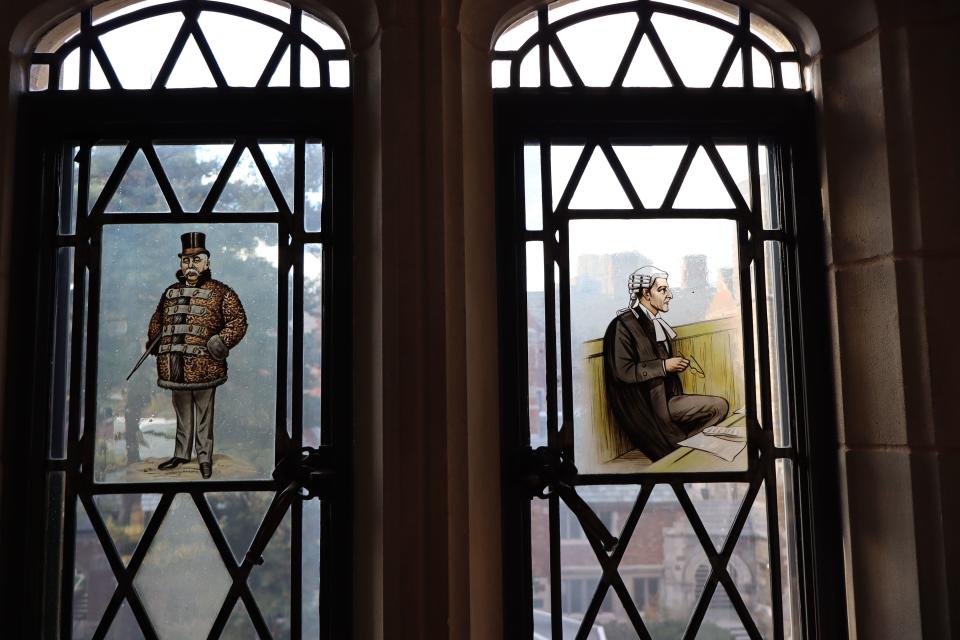
But if you ask Worthen how he wound up here, he insists he couldn’t tell you. But he’s grateful for the opportunity.
“It was out of the blue,” he said. In April, weeks after Shane Reese was announced as BYU’s next president, Reese entered Worthen’s office. “I’ve got a strange question, and I don’t know much about it,” Reese said. “I just need a yes or no. Do you have any interest at all going to Yale next year?”
Worthen, who was planning on returning to BYU law school, said he had definite interest. As it happens, several weeks prior, former federal judge Thomas B. Griffith had pitched the idea of Worthen coming to Yale to Koh, an old acquaintance of Worthen (the two clerked for the same judge).
Related
“No one asked me to call you,” Koh recalled Griffith saying. “But Yale Law may be interested in having Worthen as a visiting professor.” Koh passed the idea along to Heather Gerken, the current dean.
Neither Koh or Griffith heard anything for several weeks. But by spring, Worthen had received a formal invitation.
“We’re delighted to have professor Worthen here at Yale Law School this year as part of our academic community,” Gerken told the Deseret News.
Upon arrival in New Haven, Worthen met a vibrant group of diverse scholars and even made a few connections with BYU alumns on campus. Unlike Harvard, which has dozens of Latter-day Saint faculty across campus, the Yale community is smaller, but tight-knit.
There’s Scott Strobel, the biochemist and BYU grad, who took office as Yale’s provost in January 2020, months before the pandemic turned the world upside-down. Strobel used to serve as the volunteer bishop of the local Latter-day Saint ward. There’s Sam Wilkinson, the grandson of the late BYU President Ernest L. Wilkinson, who teaches psychiatry at the School of Medicine. His new book, “Purpose,” pushes back on the assumption that biological evolution is random, and introduces a framework where believers can find God in evolution.
“When I started studying evolution, one of the things that bothered me about it was that so many of the leading voices ... say, ‘Look, you know, life is just an accident, there’s no direction,’” Wilkinson said. “That bothered me.” Wilkinson’s new book has been praised by Francis Collins, former director of the National Human Genome Research Institute, and Arthur Brooks.
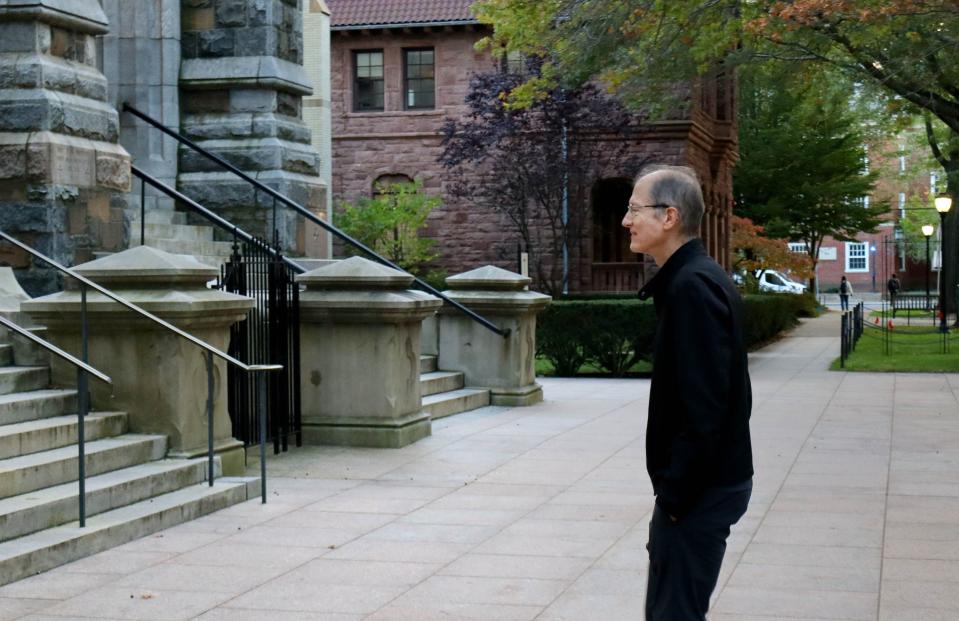
And there’s John Peters, who teaches media studies, and wound up at Yale after growing up in the shadow of Harvard, in the Boston area. Peters’ parents were both members of The Church of Jesus Christ of Latter-day Saints, though neither was participating when Peters was a teen. “My mom gave me every argument why the church is flawed,” Peters said. “It was probably good preparation for being an LDS intellectual.”
Worthen, for his part, is rediscovering the intellectual side of the academy. Some university presidents are able to stay on top of their disciplines while in office — former BYU President Rex Lee argued cases before the Supreme Court during his tenure in Provo — “but I’m not Rex Lee,” Worthen quickly pointed out.
When Worthen decided to give the life of professor another try, he made one request: no classes for the first semester so he could catch up on the discipline. When Yale approached with an invitation, he made the same request. They were happy to oblige.
“Just be a part of the intellectual life of the law school, and interact with students,” he remembers Yale’s Dean Gerken telling him.
He’s met with the students at the Federalist Society, and he’s spoken with the Native American Law Student Association. He’s also attended the local Institute class at the nearby Latter-day Saint meetinghouse, a beautiful red-brick structure just down the street. Neylan McBaine — a Yale graduate and historian of women’s suffrage — notes the meetinghouse was dedicated in the late 1990s by President Jeffrey R. Holland, the current acting president of the Church’s Quorum of the Twelve Apostle, and a fellow Yalie.
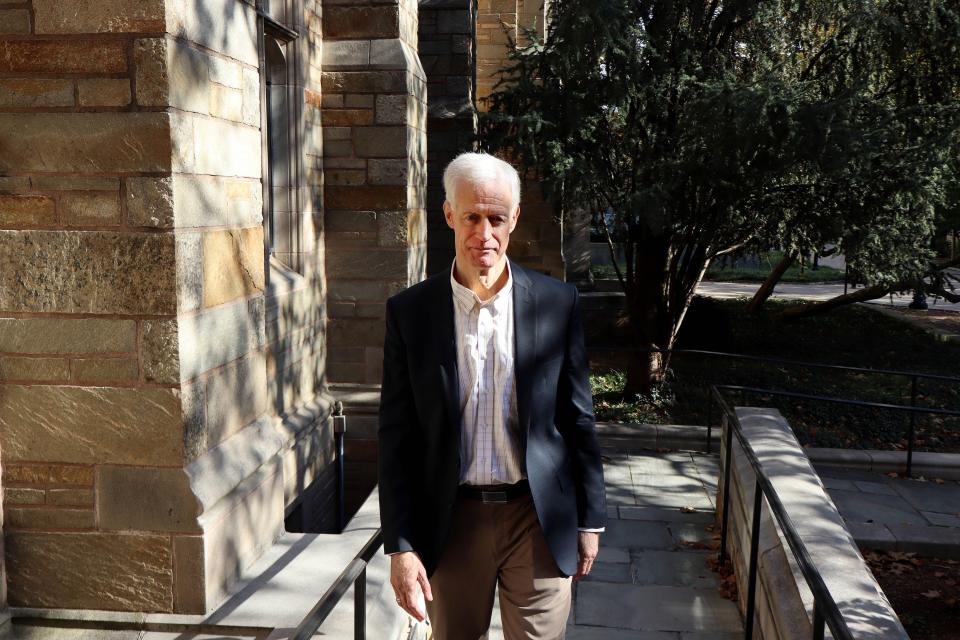
Most of Worthen’s time, admittedly, is spent in the books. American Indian law is tricky — “it’s constitutional law, by and large without the Constitution,” — he says — as the Constitution does not lay out Native American tribal rights. The question at the center of Worthen’s study is, where does the concept of sovereignty come from? His absence from the academy coincided with a new debate among two conservative Supreme Court justices, Clarence Thomas and Neil Gorsuch, over the nature of sovereignty. Where does it come from? Is it inherent? Can Congress do away with it?
These are the questions consuming Worthen’s time and may lead to future scholarship.
“This has been wonderful,” he said. “I’ll run across something, and if it’s interesting, I’ll say, ‘I’m just gonna go read that article.’”
He hasn’t noticed much of a difference while reading Supreme Court cases. “I mean, it’s a different court, different personalities, all of those kinds of things, but I think the general tenor is the same.” But commentary, in law reviews and other journals, has become much more activist, he observed. “It’s like everybody has a political point to make,” he noted.
For now, Worthen’s plan is to return to Utah after his yearlong professorship concludes. A few friends encouraged Worthen to run for Romney’s soon-to-be vacated Senate seat, but he decided there are other Utahns who are better qualified. He’ll go back to teaching courses at BYU law school. This year at Yale, he explained, is something of a test-run to see how long he wants to continue to work in academia. “I’m 67,” he deadpanned. “It’s been very rewarding. ... But I don’t know that you can replicate this for very long.”
Hal Boyd contributed reporting.
